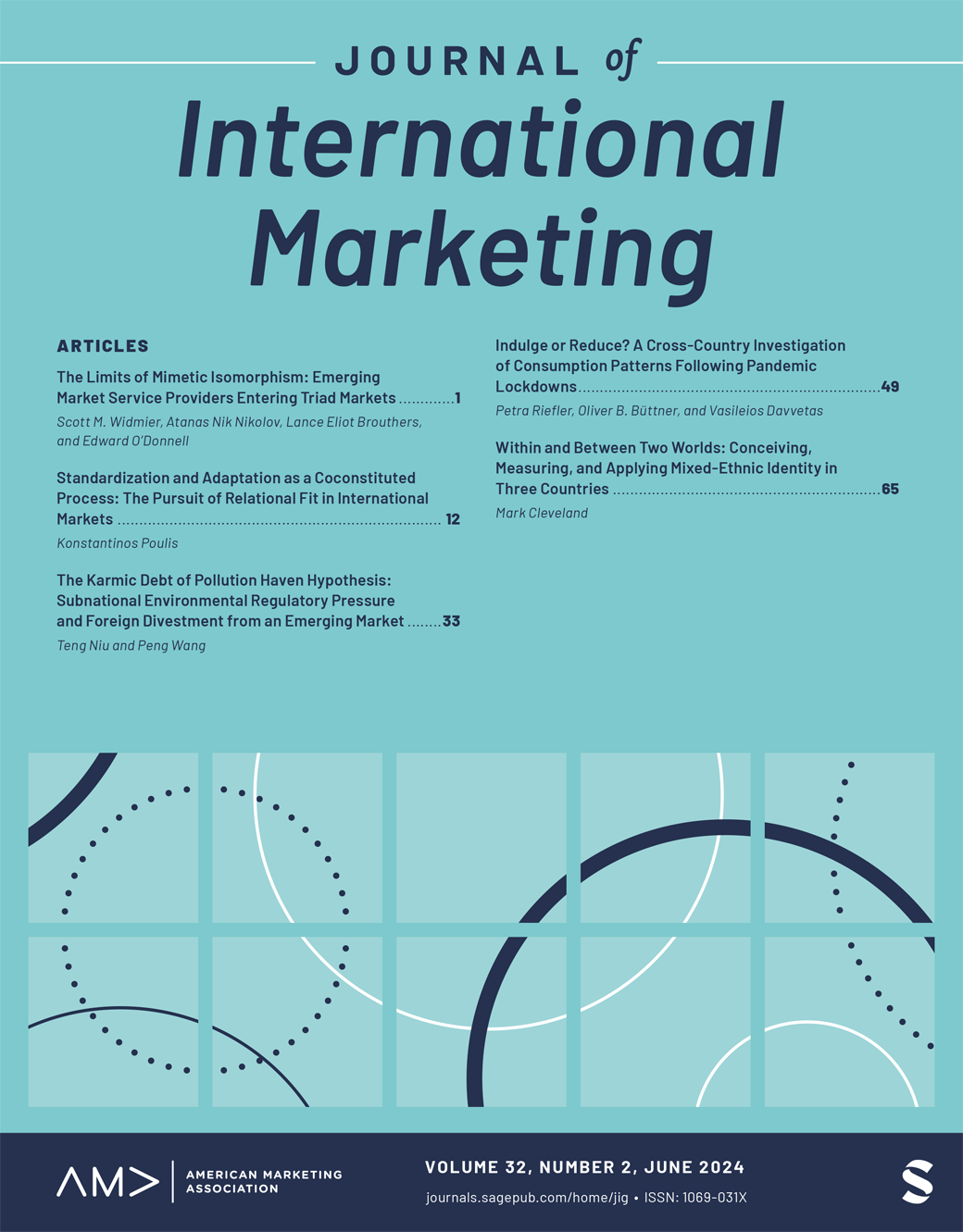《白的阴影》:三种文化中的白度、女性美的标准和道德参与
IF 4.9
2区 管理学
Q1 BUSINESS
引用次数: 1
摘要
肤色影响着女性的自我形象,这一事实长期以来一直是种族歧视和统治的结果,也是现代广告和其他形式的传播中普遍存在的浅肤色模特的结果。尽管并非所有女性都渴望肤色更白,但这一标准影响了许多曾经被白人侵略者统治的国家。然而,随着多元文化主义在发达国家和发展中国家的渗透,这些标准可能会从通用和霸权的愿景转向更现实和多样化的标准,这要求国际营销人员在“完美主义”的道德框架下积极主动,而不是被动被动地进行客户参与实践。为了检验这一观点,作者在印度、埃及和加纳完成了一项跨国定性研究(深度访谈),在这些国家,肤色浅一直是女性被认为(和认为自己)美丽的文化先决条件。利用客户参与文献和道德完美主义框架,本研究调查了这些国家接受或拒绝这一标准的女性,进一步将客户参与研究置于国际市场的背景下。本文提供了一种促进跨国公司在互利的道路上发展客户参与的方法。本文章由计算机程序翻译,如有差异,请以英文原文为准。
“A Whiter Shade of Pale”: Whiteness, Female Beauty Standards, and Ethical Engagement Across Three Cultures
Skin color affects women’s self-image, a fact that has long been a consequence of racial discrimination and dominance as well as the prevalence of light-skinned models in modern advertisements and other forms of communication. Although not all women aspire to greater whiteness of complexion, this standard has influenced many countries that were once dominated by white invaders. As multiculturalism infuses developed and developing nations, however, these standards may be shifting away from generic and hegemonic visions toward more realistic and varied standards, requiring international marketers to be proactive rather than reactive in their customer engagement practices under the ethical frame of “perfectionism.” To examine this perspective, the authors completed a cross-national qualitative study (in-depth interviews) in India, Egypt, and Ghana, where lightness of skin tone has been a culturally imposed prerequisite for women to be considered (and consider themselves) beautiful. Using customer engagement literature and the ethical perfectionism framework, this study investigates women in these countries who embrace or reject this standard, further contextualizing customer engagement research across international markets. Implications are offered as a way to advance multinational corporations’ development of customer engagement along a mutually beneficial path.
求助全文
通过发布文献求助,成功后即可免费获取论文全文。
去求助
来源期刊

Journal of International Marketing
BUSINESS-
CiteScore
8.70
自引率
17.20%
发文量
28
期刊介绍:
As the globalization of markets continues at a rapid pace, business practitioners and educators alike face the challenge of staying current with the developments. Marketing managers require a source of new information and insights on international business events. International marketing educators require a forum for disseminating their thoughts and research findings. Journal of International Marketing(JIM) is an international, peer-reviewed journal dedicated to advancing international marketing practice, research, and theory. Contributions addressing any aspect of international marketing management are published each quarter.
 求助内容:
求助内容: 应助结果提醒方式:
应助结果提醒方式:


